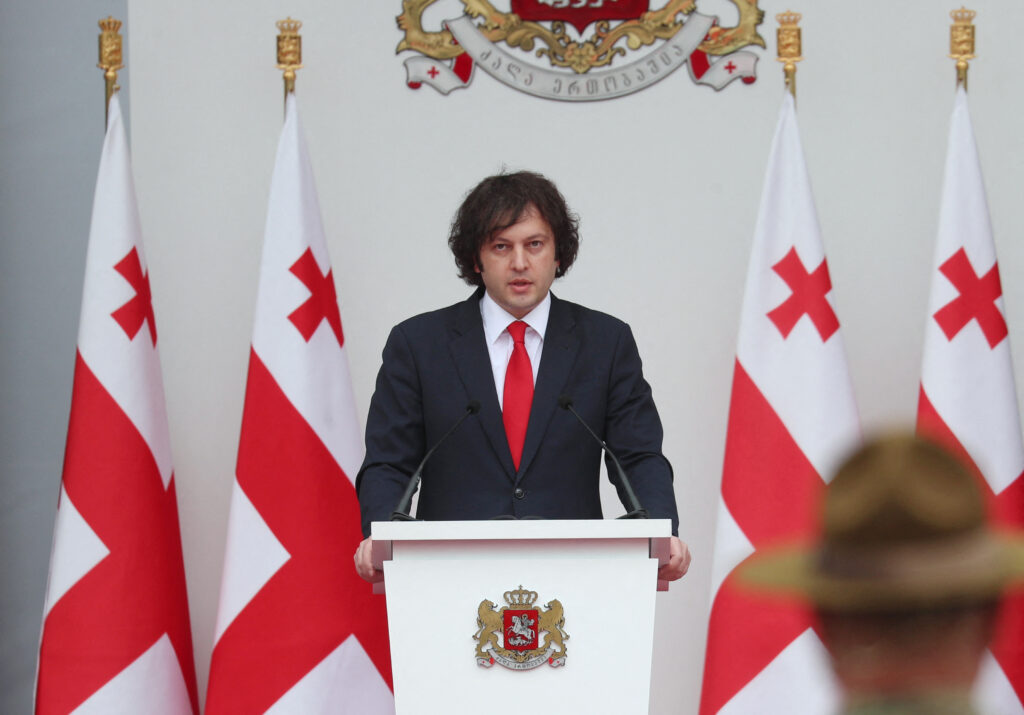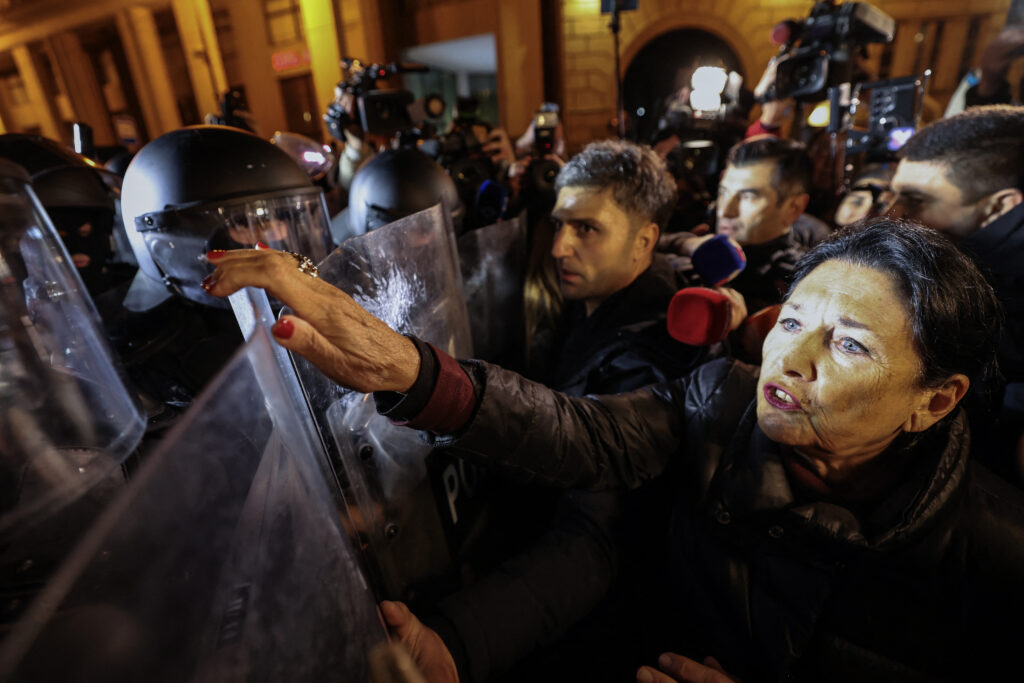Brussels –Violence returns to the streets of Tbilisi following the official announcement by the ruling Georgian Dream party to stop the process of joining the European Union, leading to thousands of citizens pouring into the capital to protest what they see as the country sliding toward the Russian orbit. While tensions resurfaced after seemingly subsiding in recent weeks, the European Parliament in Strasbourg recognized as illegitimate last month’s elections and called on Georgian authorities to repeat the vote.
The government’s decision
On Thursday evening (Nov. 28), Georgian Prime Minister Irakli Kobakhidze announced the decision not to put the agenda of negotiations to join the EU “before the end of 2028.” That is the end of the legislature that began on Nov. 25 amid citizen protests and the boycott of parliamentary oppositions, whose deputies refused to occupy their seats in a chamber that the outgoing president, pro-European Salomé Zourabichvili, defined as “unconstitutional.”
Since the governing Georgian Dream party (in power since 2012) won yet another election on Oct. 26 – an election that local and international observers denounced as irregular and the head of state as illegitimate – the small Caucasian country plunged into a spiral of chaos that threatens to spill over into new political and social tensions with an unpredictable outcome.

Yesterday evening, the premier also declared that the government will reject any funding from Brussels, accusing the EU of exploiting the accession negotiations process to “blackmail” Tbilisi and “organize a revolution” in Georgia. Despite this, Kobakhidze confirmed the goal of having Tbilisi join the twelve-star club by 2030 but reiterated (as he already did during his campaign) his willingness to join the EU “with dignity,” that is, without “selling out” national sovereignty.
The street protests
Tensions have already turned into violence. On the night between Thursday and Friday, thousands of demonstrators took to the streets of the capital to protest the government’s decision, waving Georgian and EU flags together and shouting anti-Russian chants. The response of the security forces was particularly harsh, with police in riot gear repeatedly charging civilians, using tear gas grenades, water cannons, and pepper spray, and even assaulting, according to some accounts, journalists documenting the protests.
In the front row, with the protesters, was Zourabichvili, who reportedly approached policemen provocatively asking whether they served the interests of Georgia or Russia and accused the government of having “declared war against its own people.” Speaking to the press along with opposition leaders, she labeled the events unfolding in the country in recent weeks as “a constitutional coup,” declaring herself “the only legitimate representative” of the nation, branding Kobakhidze’s executive as “non-existent and illegitimate.”

The EU’s response
Also yesterday, the European Parliament, meeting in plenary in Strasbourg, adopted by a vast majority (444 votes in favor, 72 against, 82 abstentions) a resolution to strongly condemn the irregularities in the October vote, considered “yet another manifestation of the continued democratic backsliding of the country for which the ruling Georgian Dream is fully responsible.” The House also formally supported the demands of the former Soviet republic’s opposition to hold new elections under international monitoring.
The MEPs also called on the Commission and member states to reiterate the freezing of Georgia’s accession to the EU (announced by the European Council last June, while in July, the EU cut off funding to the government ) and to impose personal sanctions on several leading figures in the Georgian leadership – including PM Kobakhidze and pro-Russian oligarch Bidzina Ivanishvili, founder of Georgian Dream (which de facto operates as a party-machine at his beck and call) – and the suspension of formal contacts between the EU and Tbilisi.
English version by the Translation Service of Withub







